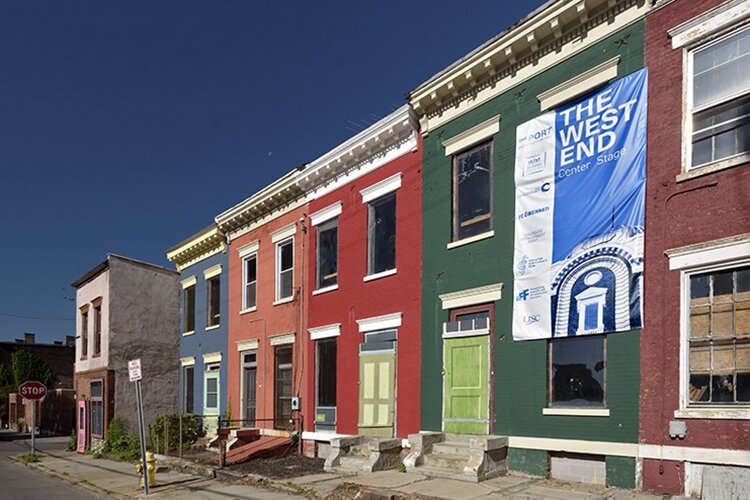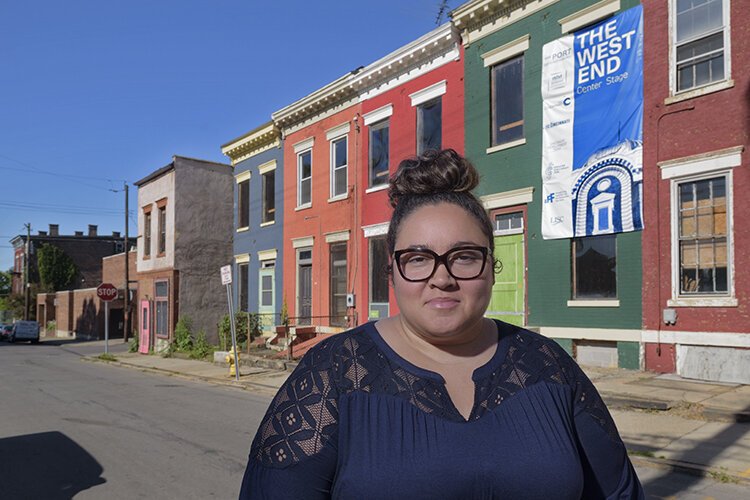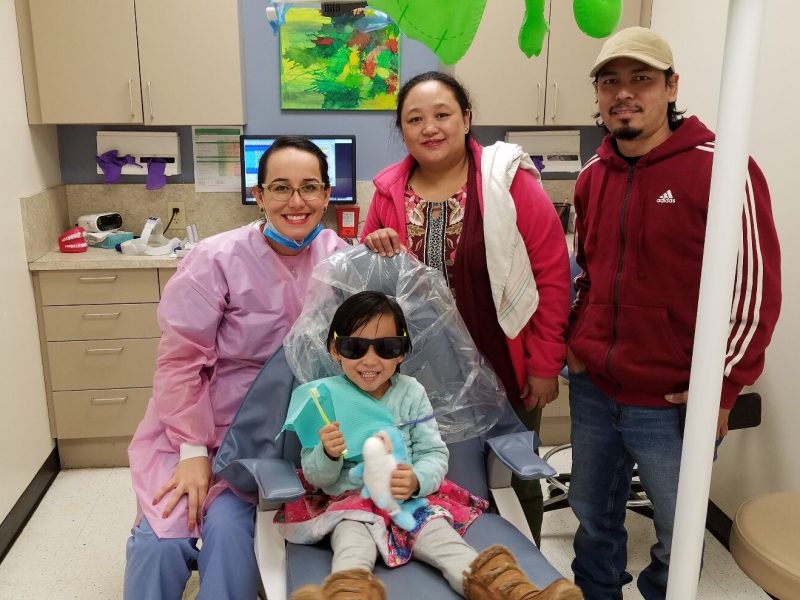With easing restrictions, West End families need childcare support and protection from eviction
The Seven Hills Neighborhood Houses, which helps residents find a safe, affordable place to live, is facing challenges due to COVID-19.
As the summer is opening amid an easing of stay-at-home orders, millions of U.S. parents face the nerve-wracking decision whether to send their children to daycare and summer camp. And they must do so without any clear data or large studies to guide them about the risks.
This is a big concern in Cincinnati’s West End neighborhood, where the Cincinnati Recreation Commission’s (CRC) Lincoln Recreation Center has been entertaining generations of neighborhood youth during the summer. While some camps have gone out of business or opted to remain closed for the season, the CRC is welcoming children in the next three months.
In a press release published by the City of Cincinnati, the Cincinnati Recreation Commission has received permission to open summer day camps and pools under new safety guidelines. Since the beginning of June, CRC has offered summer day camps at 17 locations — one of those at the Lincoln Recreation Center — closely following Governor DeWine’s mandated practices.
However, it may be more difficult to monitor the spread of COVID-19 in children because they are more prone to have only mild symptoms or none at all. A study in the journal Nature Medicine estimated that children may be only half as likely as adults to become infected. But since late April, a small but significant number of healthy children have developed a potentially deadly inflammatory complication linked to covid-19 that resembles Kawasaki disease, leaving many physicians at a disadvantage of determining who might be vulnerable.
The recreation center is operating at a ratio of 1:9 (1 staff 9 participants) and maintaining separate classroom environments for each age group. Due to the precautions, the number of neighborhood kids who can participate in activities has been dramatically reduced, which affects the amount of work some parents and families can accomplish.
Tia Brown, Community Engagement Director at West End’s Seven Hills Neighborhood Houses (SHNH), said that their programs also have been affected by COVID-19 precautions.
“Due to COVID we cannot have a large Home Sweet Home campaign like last year,” says Brown. “But we are adjusting our plans to keep residents safe and continue to share our plans of equitable development in the West End.”
A community development corporation like SHNH is an essential element of the low-income housing movement, ensuring quality homes stay affordable while preserving diversity and community in traditionally marginalized areas. Providing assistance through their Home Sweet Home program is one way that they get the aforementioned accomplished.
The Home Sweet Home fundraiser supports SHNH’s housing efforts, helping them to continue to provide eviction assistance, housing repairs and maintenance, and housing advocacy to create affordable home ownership and rental opportunities.
“It’s about working towards truly equitable development in the West End, says Brown. “Last year we organized a celebrity softball game, homecoming dance, and 5K HomeRun and were able to raise approximately $50,000 in resources to support the Neighborhood House.”
Before the pandemic, research showed that of the 2.3 million evictions that take place each year, they disproportionately impacted Black families, particularly low-income, Black women. In 17 states around the country, Black women are twice as likely to be evicted as white renters, according to statistics from the American Civil Liberties Union.
“Residents, donors and sponsors are welcome to check out the website at 7hillsnh.com to get all the latest Home Sweet Home news,” Brown says. “We are in need of funds to help with our eviction assistance program, home improvement fund, fixed income tax relief fund and funding to acquire and rehab West End homes for affordable home ownership opportunities below $200,000.”
When officials at the City of Cincinnati began making plans citywide for essential workers during the pandemic, they were prepared for things to go wrong. Pages of new protocols were put in place for infection control, social distancing, contact tracing, and transparency.
As published in a public press release June 29, the City of Cincinnati stated, “In accordance with state guidelines, the Department of Buildings & Inspections will be practicing social distancing during the reopening process with safety requirements strictly enforced.”
And over the weeks, the effects have trickled down.
“A lot of repair support for our residents has been put on hold due to COVID-19 and the city budget process [and] cuts,” says Brown. “But we have been able to continue our eviction assistance program to help keep West End residents in their homes.”
With the country reopening, moratoriums on evictions are ending and 40% of states no longer offer any protection under the CARES Act, protecting less than one-third of the country’s 108 million renters. The protections spelled out in the CARES Act only apply to properties that receive federal funds and/or are financed under a federal program like Fannie Mae or Freddie Mac. So, if your landlord owns your building outright and does not get any government assistance like Section 8 money, the CARES Act would not apply to you.
Here in Cincinnati, as temporary protections are falling away, like a series of dominoes, hundreds of evictions are already under way.
As coffee shops, churches, bars, and restaurants reopen across the region, so too are eviction courts calling for an unprecedented crush of evictions to come, threatening the most vulnerable with homelessness as cases continue to rise across parts of the county.
This is why more people around Cincinnati are seeking post-COVID-19 eviction assistance. Hamilton County has joined SHNH in providing help to those most in danger of eviction. Hamilton County’s Clerk of Courts, Aftab Pureval, announced in June a new one-stop Eviction Help Center — a way for both tenants and landlords to get their bills paid as well as finding financial and legal assistance.
“Families who face eviction lose their possessions, their jobs, and experience higher rates of depression and anxiety,” she continues. “For children, the instability caused by eviction can result in negative outcomes with education, health, and future income. This year with our eviction support, we have been able to keep 43 West End families with 31 children in their homes.”
The On The Ground: West End feature series is made possible with support from The Carol Ann and Ralph V. Haile, Jr. / U. S. Bank Foundation.

















